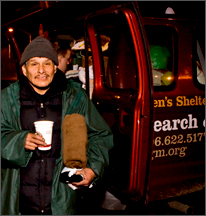By Mark Provenzano
Many people who have struggled with weight, including myself, have done horrible things to themselves mentally and physically just to see a lower number on the scale. We've starved ourselves to fit into specific size clothes for a special occasion and beat outselves up when we eat more than we're supposed to. This is not dieting, nor is it healthy. What if we adjusted our thought process to non-weight loss specific goals? Less fixation on "
I'm going to lose X-amount this week," but rather,
"I'm going to take a walk at lunch today." Or,
"I'm going to eat more vegetables."
Sometimes
not focusing on weight loss can actually lead to, well, weight loss. If we adjust our mindset ever so slightly it can make a difference. The Challenge: I want you to pick a non-weight loss goal this week. Don't attach a number to it. Just pick one of these healthy habits as an example to focus on:
Move Consciously Every Day
You don't have to join a gym, take up running, start Olympic lifting or sign up for a group fitness class. This goal is about making the decision to simply move your body more. The more you use your body, the more it will want to be used. Make a conscious decision daily to do something active and the results will follow.
Cook More and Eat Out Less
Setting a goal to cook more can seem overwhelming at first. There's definitely a learning curve if you are used to eating out on a regular basis, but if you start small it is possible to slowly shift to eating in.
It starts with meal planning. Find a way that works for you. Some people like to plan their meals on the weekends or even cook and have meals prepared. I personally thrive off a stocked pantry ans supplement with small trips to the store for fresh groceries. Whatever style works best for your current situation (because it will change), plan to eat out for 2 fewer meals per week.
Drink More Water
It's what we as human beings are supposed to drink. Water should be your drink of choice, and it's 100% calorie free. The more water you drink, the less caloric drinks you will consume. Like moving your body, the more you drink water, the more your body will crave it.
Have a Vegetable
EAT MORE VEGETABLES. Just like drinking more water, the more vegetables you eat, the less diet off-setting stuff you will consume. Set a goal to have at least 2 vegetables per day. For extra credit, go to the supermarket and try a NEW vegetable that you haven't cooked before. To find new veggies I recommend going to Uwajimaya in Seattle's International District. I find wild options there all the time. As a reference, use an online recipe website you trust for cooking instructions! Remember that unadorned veggies are the options that are most nutritious!
Go to Bed Earlier
This is my latest goal. I'm trying to go to bed earlier at least 3 days a week. Sleep is important and most people don't get enough. Setting a sleep related goal may seem like a small step but sometimes it is those little things - like a good night's sleep, that make all the difference.
The END of Mindless Eating
As a weight los program participant, setting a goal to cut out mindless snacking is crucial. My recommended method in reaching this goal is the food journal. I write it down, type it out, some people even photograph the food. A pause helps me decide if this is something I really want to eat or an unconscious nibble I won't even enjoy.
Be Thankful for the Little Things
You are alive and finding new control over a habit that has likely been a very negative force in your life. Every day that you work closer to your goal is one step towards becoming a healthier, happier you.
Blog Post written by Mark Provenzano, Program Director
Queen Anne Medical Weight Loss


